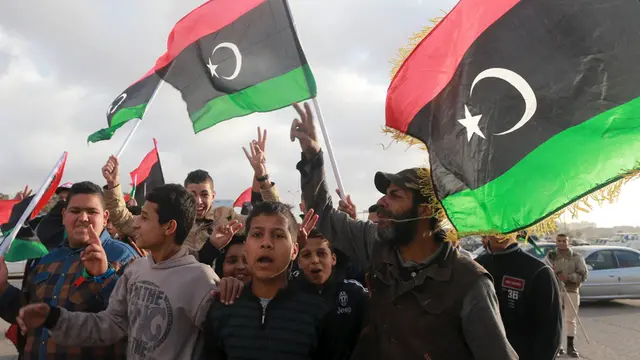With Islamic State (IS) radicals increasing their power in Libya, the United States is weighing its options in the war-torn North African state, but still no plan has yet emerged.
With Western-led anti-terror operations focused on the Middle East, the radical IS now operates with impunity and controls territory in war-ravaged Libya.
The terror organization's base is in the coastal city of Sirte, across the Mediterranean Sea from Europe and the first place outside the Middle East where the deadly terrorists have gained a foothold.
IS' presence there has been bolstered by rising numbers of reinforcements, and analysts say the group's combatants likely now number several thousand. While IS forces are numerically inferior to government forces, the sheer fanaticism of its cadres greatly increases their fighting power, U.S. experts said.
"The potential to destabilize Tunisia and Egypt is real, as is the possibility that they could conduct terrorist attacks in Europe, using Libya as a launching point," Christopher S. Chivvis, associate director of the International Security and Defense Policy Center at the RAND Corporation, told Xinhua.
While U.S. warplanes last month bombed IS' Libyan stronghold, the attack was a one-off strike and is not part of an overarching strategy to defeat the group in Libya.
A strategy to tackle the IS threat is being hotly debated in the U.S., and Chivvis said three options stand out.
The first is to continue to focus on the UN political process, although this allows the terror group to expand further across Libya, noted Chivvis.
The second is to conduct counter terror operations directly against IS in the city of Sirte and elsewhere in Libya -- an option that analysts say would have a positive near-term effect and could seriously damage IS. But the downside is that in the medium term the strategy would do nothing to rebuild the Libyan state and could exacerbate the country's civil war.
A third option is to use coercive force to selectively pressure the warring sides in the country's civil war to come to the negotiating table and form a government. With a Libyan government in place, then IS could be dealt with more effectively, Chivvis said.
Wayne White, former deputy director of the State Department's Middle East Intelligence Office, told Xinhua that most critical to tackling IS in Libya is bearing down hard and continuously at the highest levels of the international community to bring the two rival Libyan governments together.
If this is not achieved, IS in Sirte can continue fending off disjointed attacks from one side or the other, White said.
In fact, if gains were made against IS with the two Libyan governments still at odds, they might well fight over regained territory, allowing IS to regroup, he said.
"Also, since coalition air support has been considered, that would be best applied in support of coordinated - not disjointed - ground attacks against IS," White said.
White said local partners are critical to the United States defeating IS in Libya. Those would be primarily the two rival governments, with the addition of some other relatively moderate militias.
However, the ability to combine their efforts into a unity government has failed over the last two years despite the near continuous intercession of UN Envoy for Libya Bernardino de Leon, he noted.
White argued that key Western and regional governments have been distracted by the IS threat in the Middle East and have seriously neglected the threat of IS in Libya. Enditem
 简体中文
简体中文

